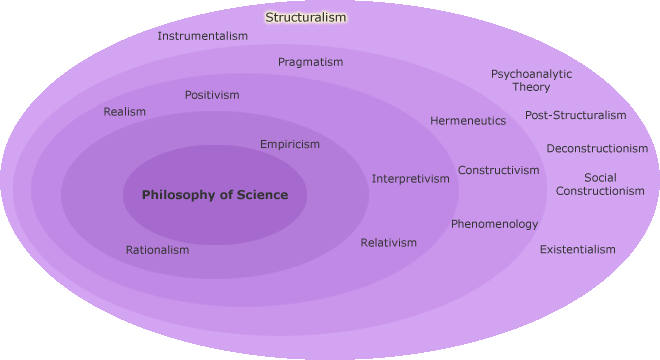Structuralism

Structuralism stresses the research of structures and meanings of structures in understanding the entities.
- The simple basic structural elements of culture, society and linguistics combine to form complex phenomena with equally complex meanings.
- You can use structuralism in various research orientations and disciplines.
Structuralism aims at either or both:
- Examining the structural forms or models of the phenomenon.
- Applying forms or models, which explain the internal structure, to the researched phenomenon.
Structuralism is a contrast orientation to existentialism.
Post-structuralism is a critique of structuralism.
Links to more information:
Structuralism. Wikipedia, The Free Encyclopedia.
Structuralism. New World Encyclopedia.
Glazer, Mark, 1996. Structuralism. The University of Texas-Pan American.
Definitions of Structuralism, 1998. Critical approaches. Bedford Books.
Phillips, John William. Structuralism and Semiotics. National University of Singapore.
